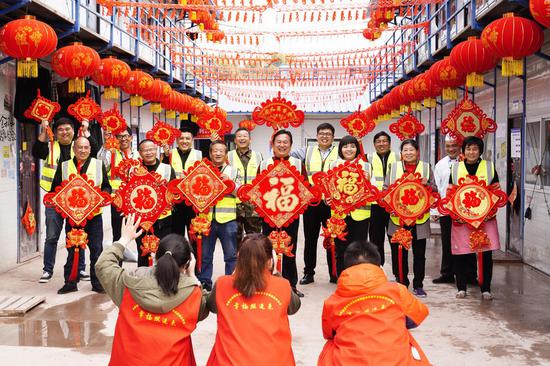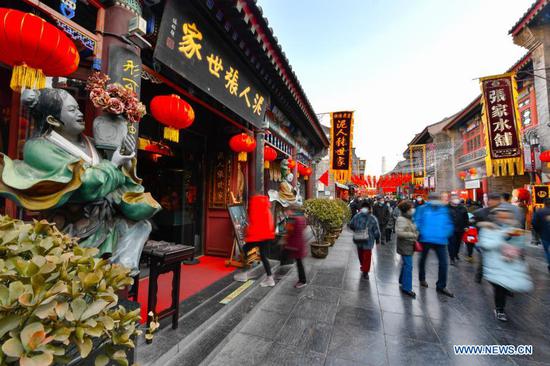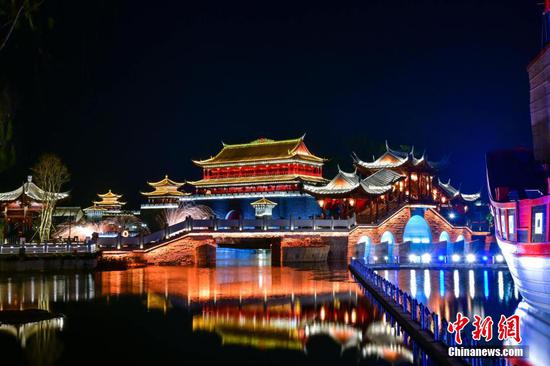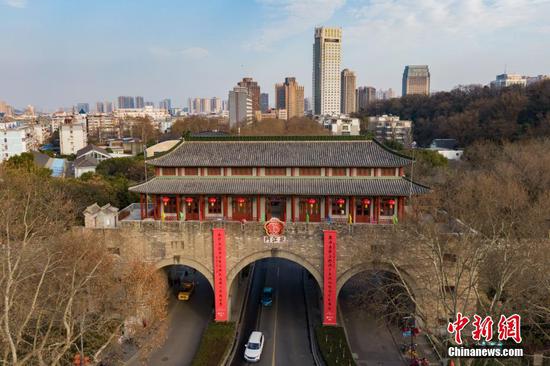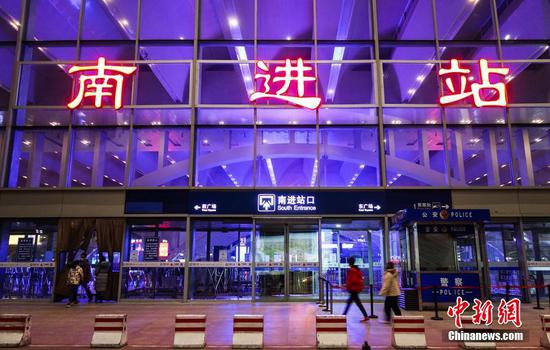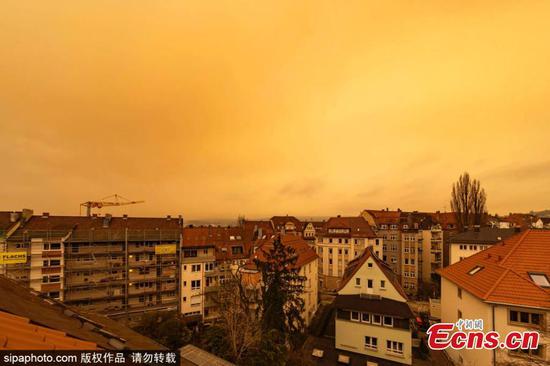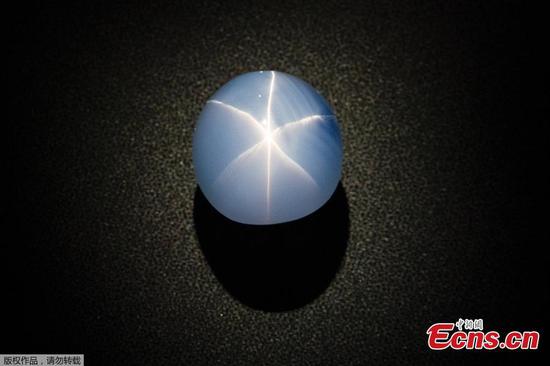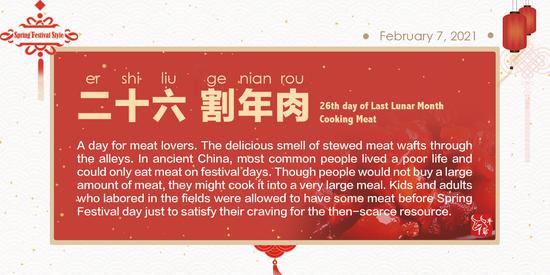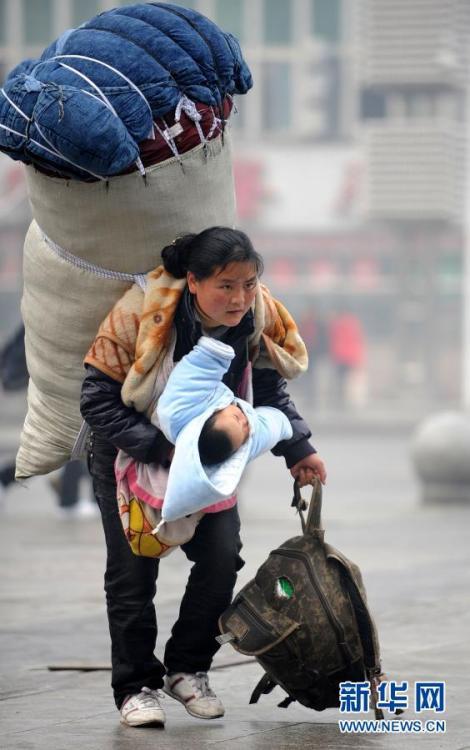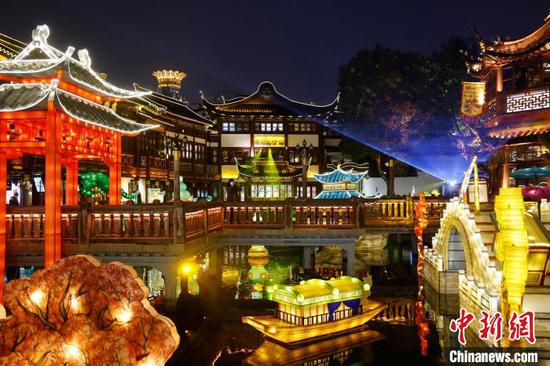
Customers select luxury cosmetics at a duty free shopping mall in Haikou, Hainan province, on Jan 31. SU BIKUN/FOR CHINA DAILY
But that also means opportunities for the company, as local consumers and their mindsets are fast-changing demand expanding to different products.
"Chinese consumers are very sophisticated and open minded. They are looking for newness, uniqueness and exclusivity. Their attention focuses on brands that are distinctive," she said.
Belli noted that compared with traditionally conservative luxury jewelry, the brand allows precious jewels to be suitable for everyday wear, and allows the combination of understatement and playfulness with sophistication.
"So we have … a lot of confidence to appeal to Chinese looking for an alternative Italian brand, authentic, genuine and a distinctive positioning," Belli added.
This constant thirst for novelty in luxury items could be better understood through the unique composition of luxury spending profiles in the Chinese market. Bain found that China's Generation Z consumers (born after 1995 and making up about 80 million people) are now an emerging source of market growth in their own right, as well as possessing a powerful influence on increased digitalization.
A joint survey by Bain and Alibaba's retail marketplaces Tmall and Taobao suggests that surveyed Gen Z respondents typically make their first luxury purchase at the age of 20. They tend to value "the pursuit of fashion" as purchase impulses, favor cross-brand collaborations and use only digital channels to research brands.
For Belli, omnichannel penetration is definitely key to providing important means for reaching and appealing to both a broader and a younger audience. Efforts include social digital platforms such as WeChat's mini program, which supports information searching and order placement.
"We are also committed to including new technological innovations which include augmented reality technology which echoes with the digital savvy luxury clients in China," she said.
Digitalization efforts are also paying off for British luxury brand Burberry. The Chinese mainland excelled versus other markets in leading full-price sales growth in the triple digits on digital channels, the company said in its latest quarterly report in December.
Full-price sales in the fourth quarter increased at an even stronger pace and strengthened over the prior quarter, which was driven by both new and existing customers while markdowns were materially lower.
Last summer, the brand opened the first-of-its-kind social retail store in Shenzhen, Guangdong province, claiming to blend physical and social worlds with a suite of digital technologies powered by Chinese internet giant Tencent.
Through a dedicated mini program backed by WeChat, Tencent's iconic messaging app, customers can unlock exclusive content on the brand and personalized experiences, and then share them with their communities.
Josie Zhang, president of Burberry China, said that with the younger Gen Z consumers shaping up to be the backbone for luxury brands, "their desire for socializing, interaction and sharing is propelling us to delve into the realm of social retail".
At the end of the day, dividends of lockdown-driven repatriation will inevitably diminish as Chinese luxury-good consumers begin to travel again in 2022 or 2023, said Lannes from Bain. But he believed brands will have at least one year and possibly two to woo shoppers and convince their consumers that domestic shopping is a better, more sustainable experience.
The Bain study found that nearly three-quarters of existing consumers in the millennials and Gen Z demographics have said they will increase or maintain their luxury spending this year.
"Also, we believe Chinese luxury consumers' online shopping behavior has permanently changed. Nearly 40 percent said they plan to increase their share of online luxury shopping over the next few years, and another 40 percent will maintain their share," Lannes said.









